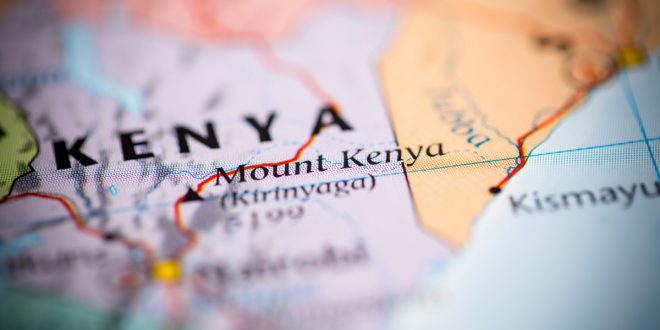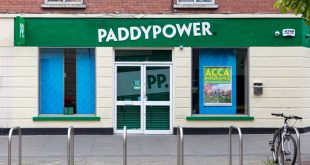Opening the week, industry strategic consultancy Regulus Partners offers its insight into some of the topics facing the gambling industry over this last week, including SportPesa’s decision to withdraw from Kenya, the closure of Towcester racecourse, and the privatisation of FDJ.
Kenya: taxation and regulation – hard lessons from a game over
Kenya’s tempestuous few years of gambling ‘reform’ has now apparently permanently driven out its erstwhile posterchild and market leader. SportPesa (until recently a c. €200m net revenue business, sponsor of Everton and Hull, F1 Racing Point team partner and official partner of Chester Racecourse) has stated that it is not going to seek to reapply for a licence as the government announced a further tax hike (an additional 10ppts to a 20% Excise Duty on stakes, voted through last week) – this is now much more than posturing, with the group laying off over 450 employees in Kenya (only two months after stating it would not be shut down or driven out of the country). Betin, another major market participant, has also reportedly given up and opted for closure and redundancy.
Kenya’s rise demonstrates the power of online betting in an emerging market where payments are not a problem – in this case due to M-Pesa (mobile money), a mass market solution to the banking crisis. The Kenyan betting sector reached reported stakes of over KS200bn in 2018, implying revenue – pre disruption – of c. €500m (including player winnings taxes collected by operators) – a very significant market given the country’s size (50m) and relative wealth (US$1.8k GPD per capita). In this context, understanding local connectivity and ecommerce provides a clear commercial guide to success. However, the issues that led to Kenya’s volte face on a once strong sector are even more instructive, in our view. We identify four key takeaways.
The most obvious issue – sometimes too obvious to notice – facing Kenya was the very rapid nature of the growth. This meant that the key operator (and others), regulator and government were constantly playing catch-up. While rapid growth might be highly attractive on some levels, it is too easy to ignore the systemic risks that are typically built up – especially for the operators enjoying the success (nobody welcomes a voice of caution within a business until it is too late, especially in ‘entrepreneurial’ cultures). Equally, while there was ample evidence that the government did not fully think through its fiscal or social policies when applied to the burgeoning betting sector, this is only to be expected under rapid growth circumstances. The minute the understanding and expectations of the government and regulator diverged from the operators, risk was created – a risk stoked by an increasingly confrontational attitude. Preventing or bridging this gap can be extremely tough – but the failure to do so can be much more painful.
Aggressive marketing goes hand in hand with rapid online-led growth. In an environment where gaming is limited or landbased, marketing too tends to be niche and so broadly out of sight for those not looking for it. Conversely, online gambling tends to want to be as mass market as possible, with a full panoply of advertising and sponsorship to drive this. Gambling operators should always bear in mind that even when commercial online gambling reaches truly mass market status (c. over 10% of adult participation), that still leaves 80-90% of adults either uninterested or anti- and big concerns for children and vulnerable groups. Gambling will never be an FMCG or insurance – marketing it as if it has mass acceptance is likely to create the opposite effect – in Kenya and elsewhere.
The rise of online betting in Kenya was creating visible problems, in terms of youth participation and personal debt. While these issues may be complex and the gambling sector may not have been as contributory (to the latter) as was sometimes portrayed, it is hard to shake of the criticism that the Kenyan gambling sector was more about growth than responsibility.
The combination of aggressive marketing and social concerns made the sector an easy fiscal-regulatory target. This was probably exacerbated in SportPesa’s case by a high degree of foreign ownership (an understandable bugbear of many emerging market countries that struggle with investment inflows) and perhaps a belated sense that mobilising community support could mitigate this.
There has been a tendency among some operators and suppliers to see emerging markets as the growth solution to maturing Western markets. On a secular and operational level, there is undoubtedly much merit in this, as Kenya until recently helped to demonstrate. However, at least one emerging market has demonstrated that it is not scared to take on and drive out one of its biggest taxpayer companies as social (and other) concerns mounted and the issues got politicised. The tobacco sector has given gambling plenty of warning that treating emerging markets principally as a source of growth and cash can go wrong at the regulatory layer. Kenya should teach gambling operators that growing an emerging market presence needs to be done sensitively if it is to be sustainable. In this context, the .com playbook can be left offshore…
UK: horseracing – Chester flexes its mussels, but its toast for Towcester
Chester and Bangor has stepped in to run Musselburgh (28 fixtures, c. 55k annual attendance, flat and jumps), but Towcester (down to 12 fixtures, c. 20k annual attendance, jumps) is now officially no more, with its rump fixtures going to ARC. Towcester’s demise was quite course-specific (selling off its best fixtures to invest in a dog track) while Musselburgh’s governance and management woes are also something of a course-specific saga. It would be easy therefore to consider these changes as of low relevance to the overall health of racing.
However, the changes come at a time when racing is in a more precarious position than recent history might suggest, further evidenced by reports that RMG and TRP are looking for turnover-based increases to media rights deals. The cause of this issue is fairly obvious: the loss of media rights that will be caused by the closure of LBOs after the B2 ban, which is now starting to happen. However, the reductions, while relatively small in the scheme of racing’s income and costs, are likely expose three significant fault-lines, in our view. The first is that costs look variable on the way up but can appear horribly fixed on the way down – especially dangerously politicised costs like Prize Money (which has been a materially bigger beneficiary of media rights inflation than racecourse profits). Second, with the partial exception of JCR, the structure of GB racing is very much split into the ‘resilient’ (large independents: high quality racing, high attendance volumes) and the ‘fragile’ (everybody else: lower quality racing on average, much lower attendance, therefore much higher dependence on media rights), but with the partial exception of ARC, the ‘fragile’ are all individual courses which cannot share or mitigate risk as a group. These two fault lines could make what should be a relatively minor adjustment (c. 6% revenue, c. 3% total costs – even the upper end impact of £50m represents less than 2 years’ overall top-line growth) a much more serious crisis. For us, the key question now is not so much who is going to plug the hole (the conceptually easy solution which kicks the underlying productivity can down the road and likely picks more fights with the hand that feeds), but how racing’s organisation and output should respond to improve the attractiveness of the product: bookmakers and racegoers might be more willing to pay for the right answers to these questions. The tough task here, in our view, is to pivot a very supply-led industry into a demand-led one, while the supply (horsemen) is still footing most of the bill…
France: gambling regulation – RNG pays out for FDJ (and the French government)?
France is to see a major shake-up of its online gambling regime prompted by the privatisation of FDJ, leading to ARJEL being replaced by a new regulatory body: the ANJ. The ANJ will have reinforced powers (including in marketing) across online commercial licensees (betting and poker) and a role to combat ‘excessive gambling’ in (landbased?) casinos. The new regulation also potentially gives FDJ the exclusive right to offer ‘Article-D (321-13)’ RNG (slot) games outside casinos (FDJ has over 30,000 points of sale across France) and online (undoubtedly a significant sweetener to the market for the government’s selling of c. 70% of FDJ shares if not clearly restricted). If this squares with combatting ‘excessive gambling’ in a very French way by simply favouring a (newly privatised) monopoly, it will give FDJ massive (and potentially challengeable) commercial advantages over its rivals, as well as probably growing gambling overall in France materially (albeit to the benefit of one operator and the relative, potentially absolute, detriment of all the others). French casino associations have already registered their concern, but it is unclear yet how (if at all) the government intends to address them. Hopes that the changes will bring about a revenue (vs. turnover) tax model and commercial product liberalisation (including online casino) are possible – but feel some way off to us unless forced by an increasingly distant (in gambling matters) EU.
Content provided by Regulus Partners










